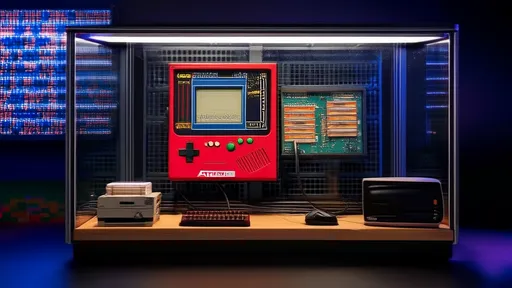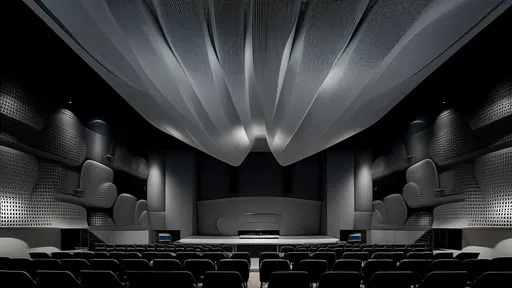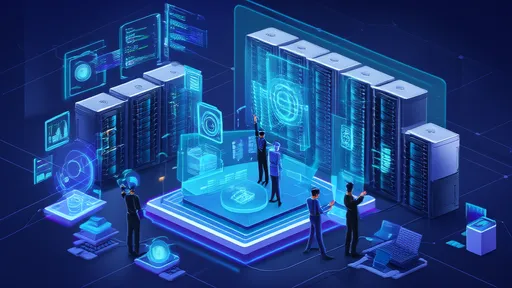The esports hotel industry has emerged as a lucrative niche within the broader hospitality and gaming sectors. Combining the comforts of a hotel with the high-performance infrastructure of a gaming arena, these establishments cater to a growing demographic of competitive gamers, streamers, and enthusiasts. However, behind the flashy setups and immersive experiences lies a complex cost structure that determines profitability and sustainability. Understanding the financial underpinnings of an esports hotel is crucial for investors, operators, and stakeholders looking to capitalize on this trend.
The initial investment required to launch an esports hotel is substantial. Unlike traditional hotels, these properties demand specialized equipment such as high-end gaming PCs, ergonomic chairs, low-latency monitors, and robust networking infrastructure. The cost of hardware alone can easily run into hundreds of thousands of dollars, depending on the scale of the operation. Additionally, soundproofing rooms, installing advanced cooling systems, and ensuring uninterrupted power supply further escalate upfront expenses. Location also plays a pivotal role—premium real estate in urban centers commands higher rents but offers better visibility and foot traffic.
Operational costs present another layer of financial consideration. Esports hotels require a unique blend of hospitality and technical staff. While concierges and housekeeping are standard, these establishments also need IT specialists to maintain equipment, troubleshoot issues, and ensure seamless connectivity. Energy consumption is another critical factor, as high-performance gaming rigs and climate control systems run continuously. Many operators underestimate the recurring expenses tied to software licenses, game subscriptions, and regular hardware upgrades to stay competitive.
The revenue streams for esports hotels are diverse but require careful balancing. Room bookings form the core income, often priced at a premium compared to standard hotels due to the added gaming amenities. However, ancillary services like food and beverage, merchandise sales, and event hosting contribute significantly to the bottom line. Some properties partner with game publishers or sponsors to host tournaments, which can generate sponsorship deals and media rights revenue. Membership models and loyalty programs are also gaining traction, offering recurring income while fostering community engagement.
Marketing and branding expenditures cannot be overlooked in this competitive space. Esports hotels must cultivate a distinct identity to stand out, whether as a luxury destination for professional gamers or a social hub for casual players. Social media campaigns, influencer collaborations, and community events are essential to building credibility within the gaming ecosystem. The cost of acquiring and retaining customers tends to be higher than in traditional hospitality, as the target audience is discerning and values authenticity.
Seasonality and demand fluctuations add another dimension to the cost model. While weekends and holiday periods see peak occupancy, mid-week lulls can strain cash flow. Savvy operators mitigate this by offering corporate packages, streaming studio rentals, or educational workshops during off-peak times. The rise of remote work has also opened opportunities for hybrid models where guests use the space for both gaming and productivity, blurring the lines between esports hotels and co-working spaces.
Long-term sustainability hinges on adaptability and technological foresight. The rapid evolution of gaming hardware means that equipment becomes obsolete within a few years, necessitating periodic capital injections. Forward-thinking operators are exploring modular designs that allow for easier upgrades, as well as partnerships with hardware manufacturers for leasing arrangements. Data analytics play an increasingly important role in optimizing room layouts, pricing strategies, and service offerings based on customer behavior patterns.
Regulatory considerations vary significantly by region and can impact the cost structure. Some jurisdictions classify esports hotels under traditional lodging laws, while others impose additional requirements related to gaming operations. Licensing fees, age restrictions, and compliance with gambling regulations (where applicable) can create unexpected bureaucratic hurdles. Insurance premiums also tend to be higher due to the unique risks associated with expensive equipment and extended usage hours.
The COVID-19 pandemic accelerated certain trends that continue to influence esports hotel economics. Heightened hygiene expectations led to increased sanitation protocols and touchless technology adoption, adding to operational costs. Conversely, the surge in remote entertainment options demonstrated the resilience of gaming-centric hospitality models compared to conventional hotels. Many properties incorporated virtual elements, allowing guests to compete with players from other locations or access their home gaming setups remotely.
Investor appetite for esports hotels remains strong despite the complexities. The global growth of esports, projected to surpass $1.5 billion in revenue, creates a compelling narrative for backers. However, successful ventures typically combine deep industry knowledge with hospitality expertise. Some hotel chains are testing esports floors or themed rooms within existing properties as a lower-risk entry point, while dedicated esports hotels often benefit from strategic alliances with gaming organizations or technology providers.
As the market matures, consolidation and specialization are likely to shape the competitive landscape. Budget-oriented esports hostels catering to amateur tournaments coexist with premium venues offering studio-quality streaming setups. The integration of virtual reality and cloud gaming technologies presents both opportunities and challenges, potentially reducing hardware costs while requiring new infrastructure investments. What remains constant is the need for operators to meticulously track their cost structures while delivering unforgettable experiences that keep gamers coming back.

By /Aug 7, 2025

By /Aug 7, 2025

By /Aug 7, 2025

By /Aug 7, 2025

By /Aug 7, 2025

By /Aug 7, 2025

By /Aug 7, 2025

By /Aug 7, 2025

By /Aug 7, 2025

By /Aug 7, 2025

By /Aug 7, 2025

By /Aug 7, 2025

By /Aug 7, 2025

By /Aug 7, 2025

By /Aug 7, 2025

By /Aug 7, 2025

By /Aug 7, 2025

By /Aug 7, 2025

By /Aug 7, 2025

By /Aug 7, 2025